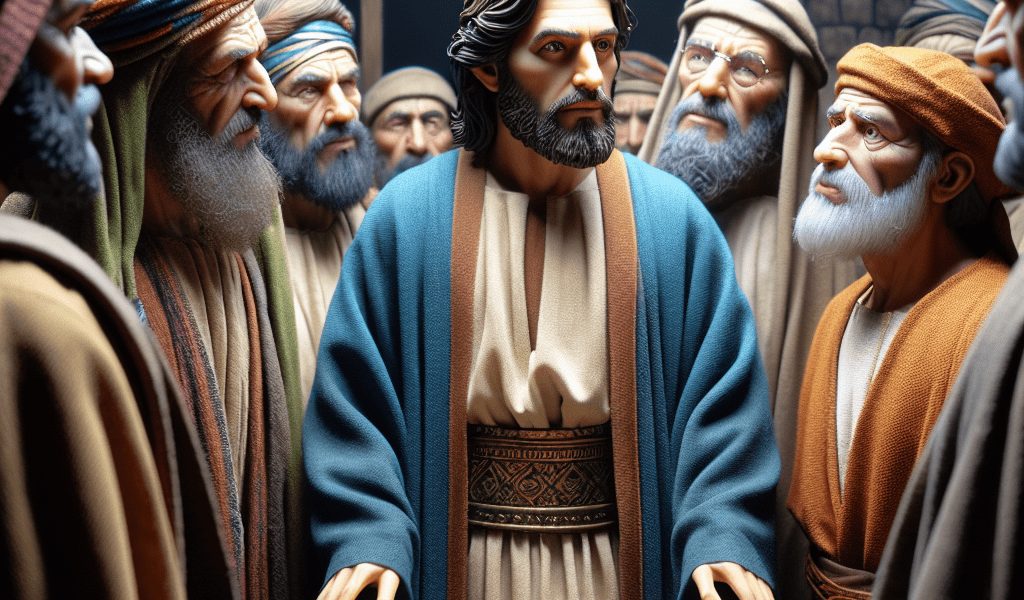Once upon a time, after a span of fourteen long years, I returned to Jerusalem. I traveled with my steadfast companions, Barnabas and Titus. My journey was not one of mere impulse or desire, but rather prompted by divine revelation. I preached the gospel privately among the well-respected men in Jerusalem, the gospel I had been tirelessly sharing among the Gentiles. I sought approval and acknowledgment from these men of repute to ensure that my efforts were not in vain.
Titus, who accompanied me, was of Greek origin. He was not required to conform to Jewish norms and be circumcised. This was a point of contention within our group. A rumor arose, brought forth by false brethren who sought to infringe upon our freedom in Christ Jesus. They aimed to bind us with the constraints of Jewish law from which we had been liberated.
However, we held firm to our beliefs. We did not submit to them or their notions, not even for a fleeting hour. We believed that the purity of the gospel should remain unstained, supporting the freedom we found in Christ.
The men of repute and significance in the society, their opinions mattered little to me. For I knew that God does not hold any man in higher regard than another. Their influence and power might be recognized among men, but they bestowed no new knowledge upon me.
On the contrary, upon witnessing my entrusted mission to preach the Gospel of uncircumcision amongst the Gentiles – just as Peter was entrusted with preaching the Gospel of circumcision to the Jews – they acknowledged our shared divine calling and objective. The grace bestowed upon me was unmistakable.
James, Cephas, and John, regarded as the pillars of faith, extended their fellowship and support to me and Barnabas. While they were to focus on preaching to the circumcised, our mission was notably towards the Gentiles. They insisted only on one thing – that we continually remember and help the poor, a duty I was all too eager to fulfill.
However, a conflict arose when Cephas visited Antioch. I found his behavior hypocritical and faced him resolutely. His fear of the circumcised Jews led him to segregate himself from the Gentiles, a group he comfortably dined with prior to their arrival. This hypocrisy was not limited to Cephas, it swept through other Jews, influencing even Barnabas.
This inconsistency was too grave to overlook. I confronted Cephas, declared his actions hypocritical, and questioned his seemingly forceful imposition of Jewish customs on Gentile believers. Just like the Gentiles, we, being Jews, were not justified by the works of the law but through faith in Jesus Christ.
In a revelation of profound authenticity and vulnerability, I admitted the paradox of faith. While seeking righteousness in Christ, we found ourselves, ironically, as sinners. In response to those who worried whether this implicated Christ as a promoter of sin, I vehemently rejected such notions.
I declared my death to the law through the law itself and pronounced my new life in Christ. I, too, have been crucified with Christ. It is no longer I who live, but Christ lives in me. The life I now live in the flesh, I live by faith, the faith in the Son of God who loved me and gave himself for me.
I do not nullify the grace of God. If righteousness were through the law, Christ’s death would have been in vain. Thus, I closed my discussion, having opened a new chapter in the understanding of Christ’s message.




